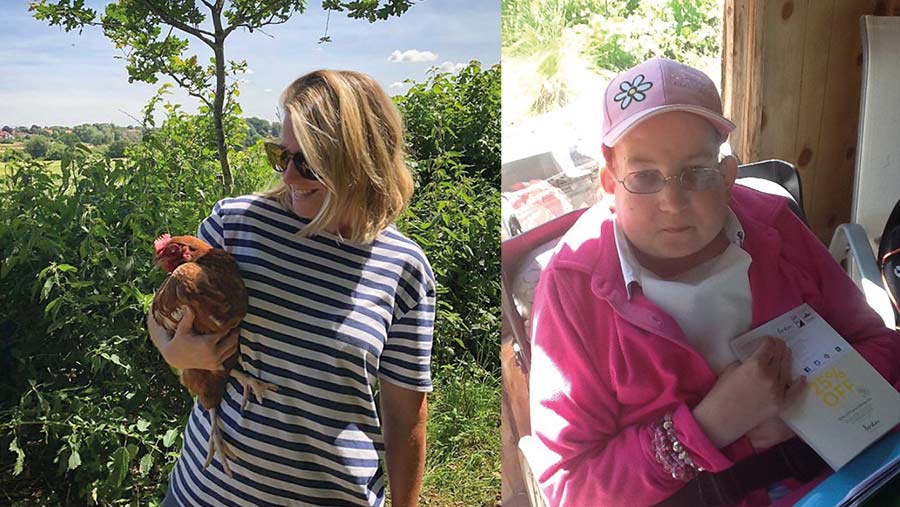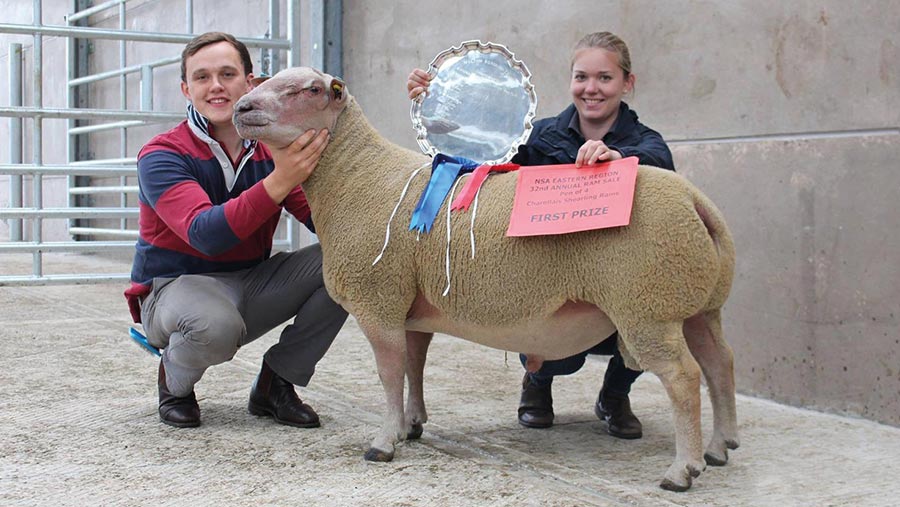How National Trust has threatened future of our family farm
 Julie and David Barber in front of pig building © Annabel Barber
Julie and David Barber in front of pig building © Annabel Barber A farming family in Norfolk has spoken out about how the National Trust’s harmful decision-making has left them at a dead end.
The National Trust has refused the Barber family’s application to convert one of their modern Yorkshire-boarded pig buildings to residential units, citing restrictive covenants put in place by the charity in the 1950s.
Despite having full planning permission from South Norfolk Council – and the trust not owning any part of their farm – the Barbers have been forced to put their diversification plans on hold.
See also: Why farm tenants are criticising National Trust landlords
They had hoped to retire from pig farming due to health and financial concerns, but now say they have been left no other option, as they cannot afford to fight the trust’s decision in court.
History
David and Julie Barber live on on the 36ha Cavick House Farm, near Wymondham, with their daughters, Annabel and Elizabeth, the girls’ partners, Tom and Mitchel, and grandmother Sheila.
Together they run a pig fattening unit, 16,000-bird free-range egg-production unit, caravan site, farm café, self-service egg shop with egg vending machine, and a small area of arable.
Annabel and Elizabeth’s granddad was a tenant on the farm, which was part of an estate owned by a Miss Bailey, from 1972.
She wanted to leave her house to the National Trust, but the organisation declined to take it on, and instead offered to install covenants to protect the house and the surrounding land indefinitely.
These covenants, which cover about 50% of the farm David and Julie bought in 1996 – after Miss Bailey’s death – were drawn up in the 1950s and have never been updated.

Annabel and Charlotte Barber © Annabel Barber
Refusal
Over the years, the National Trust has allowed the family to convert two Grade II listed buildings to residential units, erect the modern pig buildings and run various businesses on the farm.
But last year the charity claimed plans to convert the pig buildings to residential units – with the view to use them as holiday accommodation or, as a last resort, sell them – breached their covenants.
The trust’s reasons for refusal ranged from not wanting the building to change from agricultural use, to concerns about the visual aesthetics of the plans, to stating the site was in the Tiffey Valley (an area of natural beauty), to not wanting a car park on the property.

Elizabeth and Mitchel © Annabel Barber
“My dad erected the pig buildings in the 1990s and they have no historical significance and certainly no beauty,” says Annabel.
“The point of being granted permitted development is that the plans are restricted by the planning guidelines and we are required to retain the exterior of the building and external layout of the building completely, with only minor alterations allowed, so we cannot understand how they [the trust] can refuse it.”
“The farm is surrounded by trees, so the building wouldn’t be visible to most people, it’s not in the Tiffey Valley, and we already have visitors in cars for our existing businesses,” Julie adds.
See also: Call for National Trust tenants to be protected from landlord
Unbearable situation
David, 67, had life-saving surgery in 2010 to tackle aggressive prostate cancer and still suffers from many difficult side effects from radiotherapy. He also had a double hip replacement.
He runs the pig business by himself despite his ill health, and says a cash injection is desperately needed to update the facilities and meet the latest regulations.
David and Julie’s oldest daughter, Charlotte, had a brain tumour when she was eight years old, which left her disabled, and she sadly died from cancer in May 2018, aged 37. She is buried near their house.

The pig building to be converted © Annabel Barber
Julie, who was Charlotte’s full-time carer for 30 years and so unable to take on another job, says: “The thought of having to sell our home and farm and leave the memories and Charlotte’s grave is unbearable.”
She wrote to the trust’s managing director, explaining their situation and asking for help to continue with their diversification plan – which she described as their last hope – but received no reply.
Instead, two members of the local National Trust team visited the farm, but the Barbers say they appeared “cold” and to “just be paying lip service”.
“They said they’re willing to work with us, but they’re completely shut down to any other option than refusal, which they still haven’t given us a good reason for,” Julie says.
“This is the only viable development on our farm and they are putting our family’s future in jeopardy.
“If we had pots of money, we would fight them because we cannot go on as we are.”
National Trust response
A National Trust spokesperson says: “The National Trust holds 1,760 separate restrictive covenants over about 36,000ha of land. These conservation covenants enable us to protect beautiful, natural places and historic buildings and to retain the character of the landscape.
“Covenants are independent from the planning process. We have a duty to recognise the purpose of the original covenant and the spirit in which it was given. While we try to accommodate sympathetic changes, we need to ensure that proposals do not have an adverse effect on the conservation interest the covenant secures.
“The trust is committed to managing our covenants fairly and, where a landowner wants to make changes to their land, we will always work constructively with them to find solutions.”
